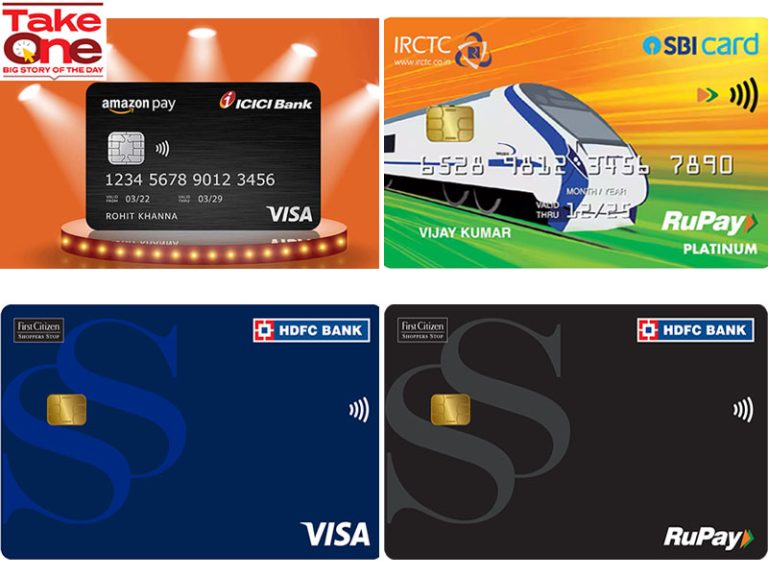Retail Coffee Meet on 28th April had something for everyone in this retail industry. Uniting innovators, influencers, and decision makers, it brought together the best in class from all retail disciplines. Our headline speakers were disruptors, tech leaders and retail trailblazers with a demonstrable track record in business change and innovation which provided live examples of how to create effective retail strategy and partnerships to drive a business successfully.
The third session was all about “How Digital-Led Customer-Focused Initiatives are Changing the Face of Retailing”. It was moderated by Mr Mitul Das (CEO & Digital Strategist at Urs Digitally) and the honoured speakers were Mr Murali Krishnan (Co-founder & CMO, Wow! Momo Foods), Ms Sara Sethia (Director, Success Menswear), Ms Shivani Agarwal (CMO at Uptownie) and Mr Tanay Agarwal (Director at Skipper Furnishing).
The session dissected the various Customer led initiatives which are changing the way Retail brands are positioning themselves in today’s post COVID ecosystem
The panel discussion focused around the following topics:
- Understanding how New Media innovations like Metaverse is playing a big role in defining Brand – Consumer Engagement
- How social media can be used as a tool to build / manage / monitor brand sentiments and examples of some of the successful case studies in this space
- How AI is redefining the Brand – Consumer Conversations and quick discussion on ChatGPT
- How brands are adopting experiential marketing using AR/VR most suited for the GenZ

Sara Sethia said that digital transformation in retail can navigate customer retention and satisfaction by offering customers the services and products they need. Big data analytics, location-based services and mobile apps have brought a significant transformation in the way retailers conduct business. In today’s scenario, things have taken an abrupt change when speaking of business. Digitalization plays a significant role. It helps in planning the business strategies, it brings amendment in the culture and also provides better customer experience. So that business could meet the market requirement and changes occurring around it. Digital transformation in Retail Industry brings a revolutionary change in the field of business. As digitalization helps in scaling the business up through, it is also a way of execution. To have a successful business one must execute this policy so that the growth of the company should not be restricted and especially in case of retail. Retailers must implement this to have a full fruit output.
Technology is enhancing the retail industry in countless ways, from augmented reality and enhanced customer experiences to greater precision and control over marketing data and inventory management, remarked by Tanay Agarwal. He also added that in the wake of the coronavirus crisis, digitalization is transforming companies in the retail industry faster than previously planned. The focus of digital transformation is increasingly shifting from the product to the customer, combining customer experience (CX) with operational excellence (OX). For a complete digital transformation to be successful, the foundation needs to be strong – be it a single view of orders, products, inventory, customers or a scalable architecture to support dynamic changes in the business. Moreover, selecting the right technologies that can bring value is also one of the significant challenges. At the same time, it is essential to take evaluated risks to understand what new infrastructure and technologies would be suitable for an organization.While deciding about going digital, retailers think about how they can use emerging technologies to find new ways to drive revenue and create innovative business models. As digital tools and technologies emerge, they are going to have a considerable impact not only on the services offered by the company but also its organization of the workflow.
Shivani Agarwal commented on this, through digital transformation, retailers can collect customer data to create personalized and targeted marketing campaigns using technologies such as CRM, data analytics, and marketing automation. This allows retailers to identify patterns and trends while providing insights into their target audiences. Summing up she said that retail digital transformation is the infusion of technology in the retail industry to enhance operational efficiency, improve customer experience and drive growth. Retail employees’ energy and time are usually focused on tracking items to make sure that items are not out of stock and checking items if they are at their right place. Data analytics plays a crucial role in the optimization of prices. Using different analytics algorithms, you can perform several functions, including monitoring inventory levels, tracking demands, responding to market challenges in real-time automatically and monitoring activities of competitors. With price optimization, it becomes possible for retailers to determine when to drop or raise prices. Before analytics was introduced, retailers would drop prices after a buying season ends for a specific product. At the same time, analytics represents that a gradual price drop from when demand starts vanishing would result in increased revenue.
Murali Krishnan mentioned rightly that digital transformation that the industry is experiencing is not only a means of sustaining itself, but it also offers a great opportunity for companies to rethink their core proposition. It can prospectively redefine its relevance for the customer. Digital service providers have influenced consumer expectations and have ushered in an era in which successful companies are providing products and services to consumers that are relevant and convenient. It is also one of the significant areas when looking into data analytics in retail businesses, as every customer interaction has a significant impact on both existing and potential relationships. Executing the idea without knowing about it entirely can be risky because a wrong decision could lead to a prolonged or quick loss. Retail players can predict the future performance of different products based on the customers’ existing interests and likes. Lastly, he said that the most important popularity of a brand depends on its storytelling. When we use storytelling in retail, it helps shoppers quickly become engaged. Stories help us understand others and ourselves. We feel empathy with the characters we encounter in stories. That is especially important in retail sales because people are loyal to people, not products.

This is the digital era where a customer touch point is many and it’s important to do a 360-degree marketing or outreach program for your brand. When brands combine channels such as whatsapp, email, SMS, facebook, instagram into one cohesive marketing campaign they can reach the right customer with the right message, on the channel they respond to best. Customer life cycle management by adding them to nurturing campaigns and having constant touch points with your customer is the key focus here. The three buzzwords that you just cannot forget here are customer engagement, customer retention and user journey mapping.
In concluding it, we can say that Statistics show that 80% of the customers shop from mobile apps, and customer engagement is maximum from mobile applications. The customer portfolio has shifted and is getting shifted to those who are tech-savvy with more of an impulsive buying behaviour, and the access to the online stores when customers are on the go, waiting somewhere or when they remember the need to buy something takes up a large percentage of purchases. Online stores, especially online marketplaces also provide a large variety of products to compare and buy from, with aggressive pricing offers and much simpler product recommendations. Omni-channel commerce has the advantage of hooking the psyche of a customer, reminding them again and again that they need to a buy a specific product until it translated into a conversion. At the heart of Mobile Commerce and Omni-channel commerce, is a deep philosophy for customer engagement which is personalized and targeted, that it’s difficult to ignore and can literally follow you everywhere!















